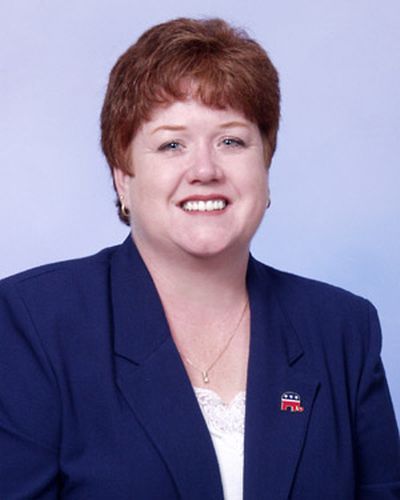Bill would end Idaho Women’s Commission
Lawmaker says panel has served its purpose

BOISE – A North Idaho senator says Idaho no longer needs a state Women’s Commission because women have “taken their place” in society.
Sen. Joyce Broadsword, R-Sagle, introduced legislation Monday to eliminate the Idaho Women’s Commission, a state agency whose existence long has been controversial.
“Thirty-nine years ago they were set out to get women to be more involved in social, political and economic areas of their communities,” Broadsword said, “and I think they’ve been very successful. Women are involved in everything these days. … I feel the commission has served its purpose, and it’s not something that needs to be funded by state dollars any longer, especially in this time of economic downturn.”
However, in 2004, the Institute for Women’s Policy Research gave Idaho poor grades – mostly D’s and F’s – for measures of women’s status and well-being including social and economic autonomy, employment and earnings, and reproductive rights. Idaho ranked dead last in the nation for the percentage of women in managerial or professional occupations, at just 24.6 percent, and the state ranked 40th for women’s earnings compared to men’s. Overall, the institute found that more of Idaho’s women work compared with other states, but they’re not getting good jobs or good pay.
The state ranked well in one area, however: having a state Women’s Commission, like 41 other states.
Broadsword tried to eliminate funding for the commission last year in the Joint Finance-Appropriations Committee, and there was a 10-10 tie, before several members changed their votes and saved the tiny agency. Its entire proposed state budget for next year is less than $30,000.
House Appropriations Chairwoman Maxine Bell, R-Jerome, said she has seen many such attempts over the years. “It seemed like there were always those, especially the males on the committee, who did not see the value of funding the commission. And frankly, there are some women on there now who feel the same way.”
Former Sen. Mel Richardson, R-Idaho Falls, often objected that Idaho had no men’s commission.
“I remember remarking one time, ‘Well, you have a Sheep Commission,’ ” Bell said. “That didn’t go over too well.”
In 2006, four female legislators on the joint budget committee, including Bell, revamped and trimmed back the commission’s budget, winning a rare unanimous vote for its funding that year. The changes included cutting the commission’s director to one-sixteenth time, and targeting most of the budget into services, such as the book on Idaho family law that the commission produces and distributes every other year. At that point, Richardson pronounced himself satisfied that the commission’s activities were worthwhile.
Broadsword is not. Back in the 1960s and ’70s, “There was a need at that time,” she said. “Times have changed. … It’s a new day – this isn’t the 1970s anymore. Women (have) entered the 21st century and they’re a contributing partner if not a driving force in all areas of life.”
On Monday morning, Broadsword presented her bill to the Senate State Affairs Committee, which agreed to introduce it. But there were two dissenting votes, and several other members said they might not support the bill beyond introduction.
Broadsword was more successful with another measure, to eliminate a never-funded state advisory committee on youth education. That group, enacted by law in 1992, was supposed to run radio and TV ads against drug and alcohol abuse. Broadsword said it was never funded, and that other groups are doing that now.
Both of Broadsword’s bills, she said, are part of work she’s been doing with Gov. Butch Otter’s staff to look at state boards or commissions that are obsolete. The governor has found “eight or 10” that were established by executive order and he can just eliminate on his own, she said, including the science and technology advisory council, the manufactured home park advisory council, the roadless rule task force, the Governor’s Council on Adolescent Pregnancy Prevention, and several that have been rolled into other groups, including the Idaho Council on Children’s Mental Health and the Suicide Prevention Council.
Broadsword said, “I think we need to find every penny we can. We’re cutting programs that have long-term consequences, and funding things that are not necessary for the state as a whole is a waste of taxpayer dollars.”